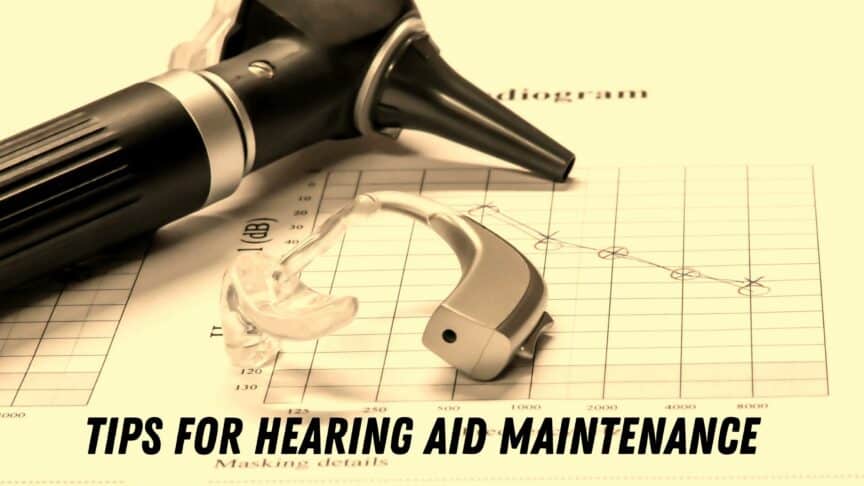If you use hearing aids, then you know how important they are. Hearing aids help you hear your loved ones, your friends, and co-workers. They also allow you to stay active and alert when you are out in the world so you can feel confident in pursuing your joys and passions. It’s important to remember that these tiny electronic devices do a lot for you each day and they will continue to do so with proper care and maintenance.
The average hearing aid has a lifespan of five to seven years, and while that may not seem like a long time at first, consider that they are amplifying sound, in a best-case scenario, from the moment you wake up, till the time you go back to sleep. To get the best performance out of your hearing aids, avoid numerous repairs and get the longest life, it’s important to practice proper care and maintenance. Here are a few tips to ensure that you get the most out of your hearing aids.
Avoid moisture and store in a dry place.
Some hearing aids are water resistant, but no hearing aid is 100% waterproof. Water is not the friend of your high-tech digital hearing aids. Too much moisture, whether if it is from an accidental submersion in water or from sweat and humidity, can cause circuits to short and corrode battery terminals. Make sure to take out your hearing aids whenever you bath or swim. A waterproof case can ensure that your hearing aids are out of harm’s way and less prone to accidents when close to water.
Of course, accidents do happen. If your hearing aids accidently take a swim or shower with you, power them down immediately. Put them in an airtight bag with rice to absorb moisture, as you would with a submerged smartphone. If you live in a humid environment or sweat a lot, it’s a good idea to invest in a dehumidifying case. Some of these double as chargers for rechargeable hearing aid models. Make sure to put your hearing aids in the dehumidifying case overnight to make sure moisture doesn’t build up and start to cause issues with their performance during the day.
Change hearing aid batteries often.
Some hearing aids offer rechargeable batteries. This convenient way of powering hearing aids allows the user to simply plug them in at the end of the day and enjoy a full charge till it’s time to plug them in again. However, there are still many modern models which use replaceable batteries. These batteries generally have a lifespan of 1 to 3 days and it’s important to always carry replacements wherever you go. The battery is the power source for your hearing aids and as the power drains they perform less clearly. When not using your hearing aids open the battery door as this stops the drain of power until you need them again and remember to always carry extras.
Add cleaning your hearing aids to your nightly routine.
Just as you brush your teeth and wash your face before bed, add cleaning your hearing aids to your nightly routine. Your hearing aids go wherever you go, so they can collect a lot of dirt and earwax during a day. If this builds up it can clog openings and ventilation, compromising sound and performance. Use a soft dry cloth to remove dirt and earwax daily. Some people find success using a soft tooth bush to remove dirt from crevices. In addition, there is a wax filter on many hearing aids that can be replaces when it gets too dirty. Pay attention to earwax buildup on your hearing aids and change the wax filter regularly.
Handle with care.
Be careful with your hearing aids. They are more durable than they once were but the gentler you are with them, the less prone they are to need repairs.
Schedule routine cleanings.
Regular home maintenance will ensure you will get much better performance out of your hearing aids, but there is no substitute for a professional cleaning. We can make you’re your hearing aids are clean and spot a potential issue before it becomes a costly problem. Schedule hearing aid maintenance with us every 4-6 months or whenever you spot a problem.

